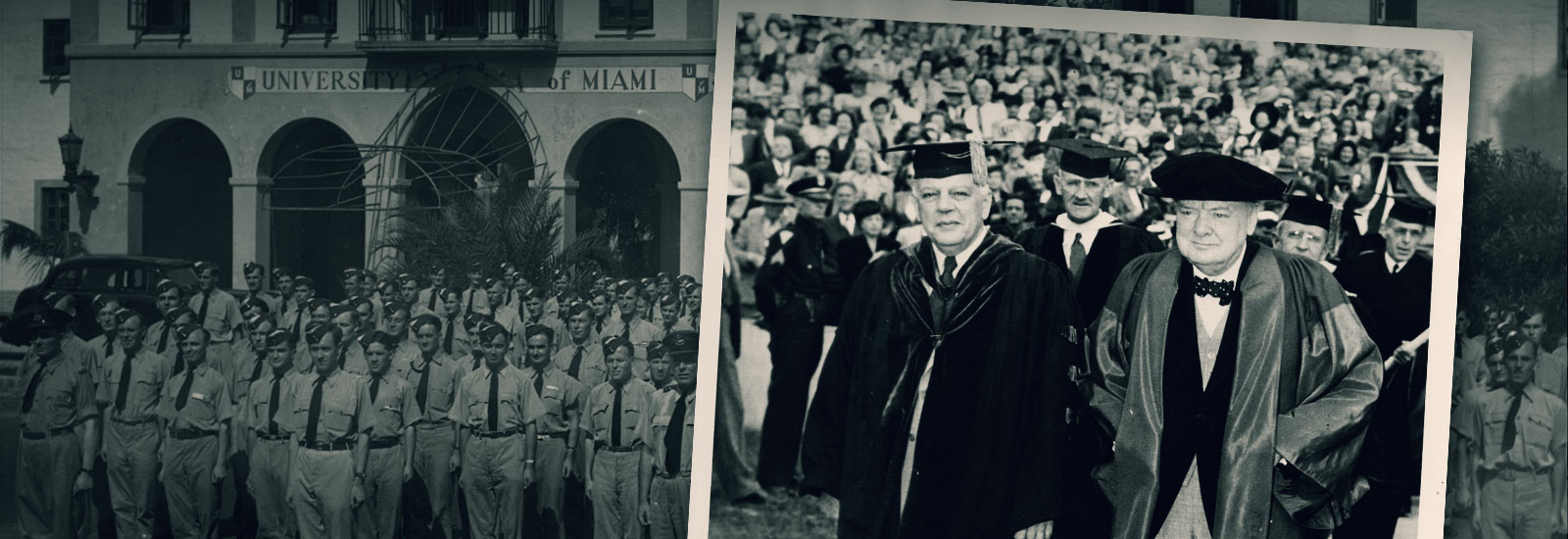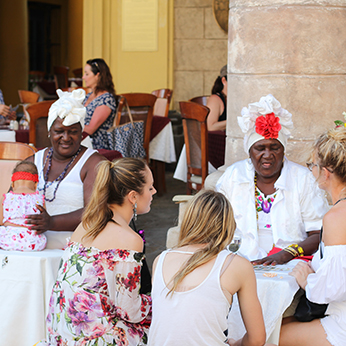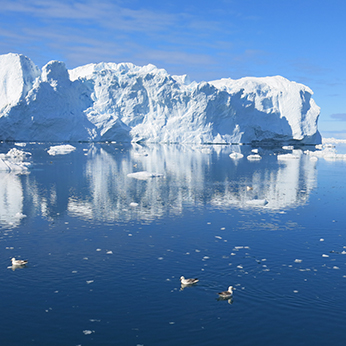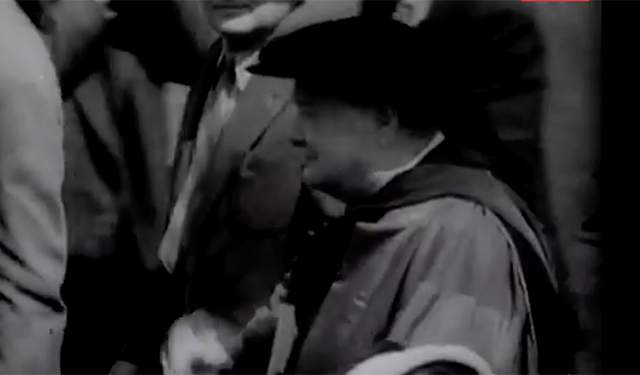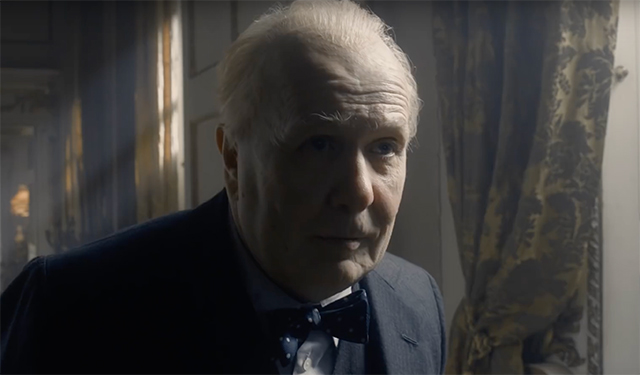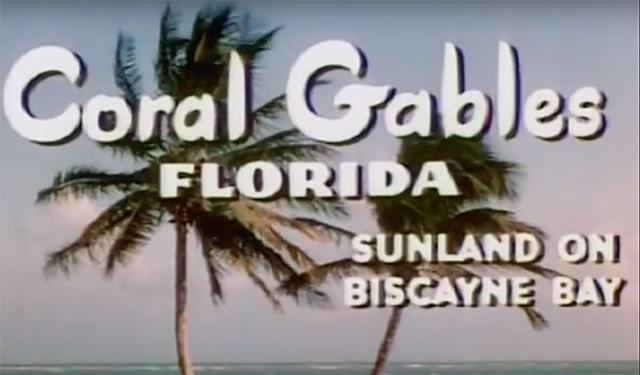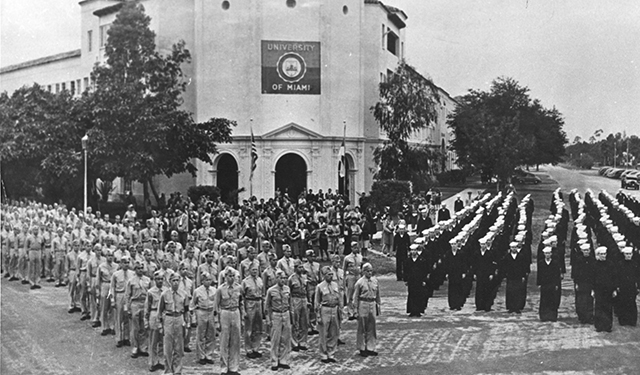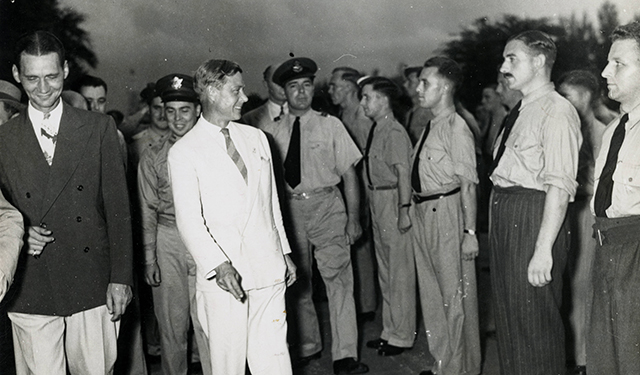Palm fronds and a retinue of British and American flags waved in the blustery breeze as Churchill stepped onto an outdoor stage to address a crowd of 17,500.
In "this age of machinery and specialization," Churchill praised the University for its dedication to education and urged that university study be ample and broad in its scope and exceed "pure vocation."
"Knowledge of the past is the only foundation we have from which to peer into and try to measure the future," he said. "Expert knowledge, however indispensable, is no substitute for a generous and comprehending outlook upon the human story with all its sadness and with all its unquenchable hope."
Despite his tremendous respect for education, Churchill admitted that he had been a rather poor student. "In fact, you might say that no one ever passed so few examinations and received so many degrees," he joked in his speech that day.
Yet from those early challenges, he drew this moral that he suggested others might accept: "That no boy or girl should be disheartened by lack of success in their youth but should diligently and faithfully continue to persevere and make up for lost time."
Churchill thanked the University for the "very high quality of technical, navigational and meteorological training" it provided for upwards of 1,200 Royal Air Force navigators.
Beginning in 1940—almost two years before the United States entered the war—the University of Miami and Pan American Airways combined to offer training to these airmen whose success in "Spitfires" and "Hawker Hurricanes" helped to turn the military tide against Luftwaffe Nazi planes, especially in battles over London skies.
These young cadets were housed in hundreds of Miami homes, they remained in correspondence during and after the war with their "foster parents," and they created "a tradition" at the University, according to Bowman Foster Ashe, University president at the time.
In bestowing the degree, President Ashe thanked the man "who seems to be the essence of all those strong and noble qualities which carried the British people through to victory.
"Except for his leadership and the staunchness of these people, most of the world would have faced a degradation which is horrible to contemplate," Ashe said.
Despite his fortitude, courage, and leadership in the “fearful war,” Churchill’s Conservative Party suffered a crushing defeat in the first postwar election in July 1945. British society had been radically changed by the war, creating a whole new political atmosphere.
Like so many who visited the “Sunland on Biscayne Bay” then and now, Churchill left revived: “I have enjoyed my stay in your genial sunshine and it has done me a lot of good.”
A few weeks after visiting UM, Churchill traveled to a small college in Fulton, Missouri, where he offered for the first time his speech on the “Iron Curtain.” He was elected to a second term as prime minister in 1951.
Special thanks to Koichi Tasa, librarian associate professor in UM Libraries University Archives, for his assistance with this article. All photos provided courtesy of University Archives.



